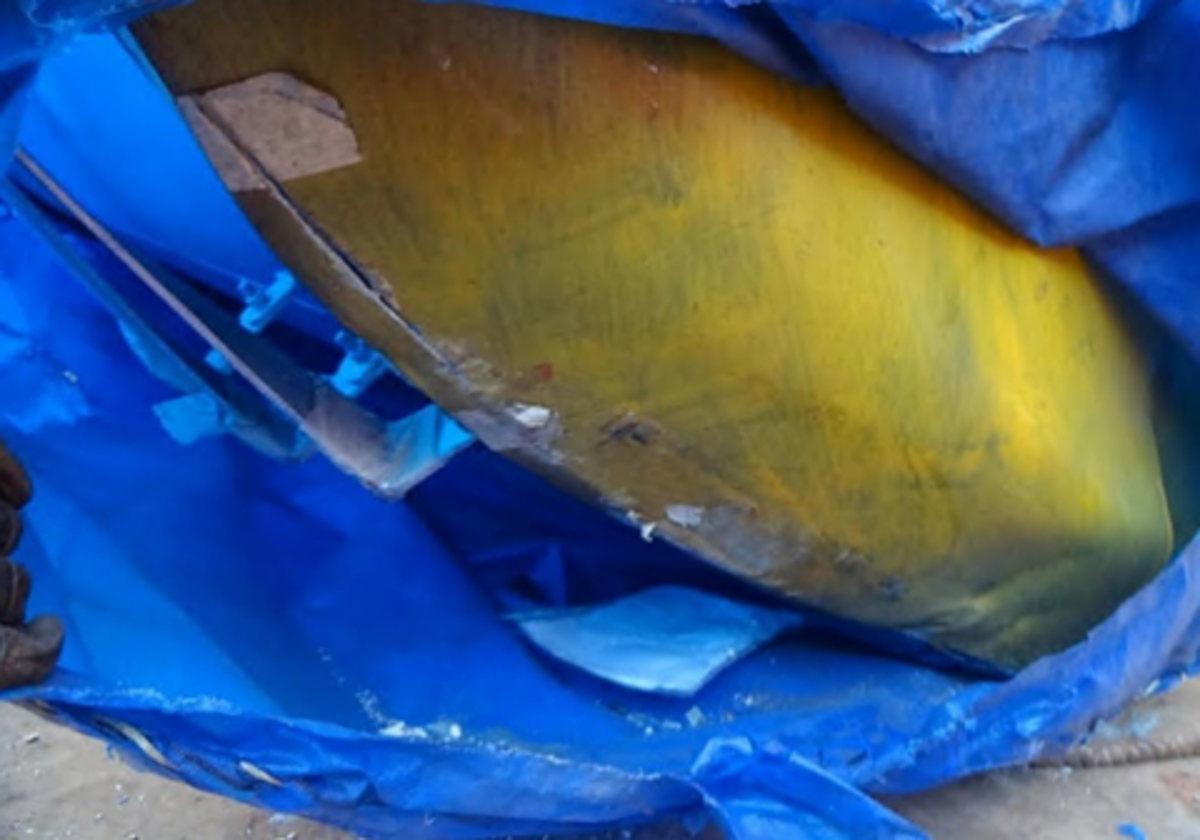Wrapped cargo slipped during loading and fell
- Safety Flash
- Published on 13 February 2020
- Generated on 25 April 2025
- IMCA SF 05/20
- 2 minute read
Jump to:
What happened?
A large load weighing over six tonnes was dropped during loading operations. The item was a hot air duct. The centre of gravity (COG) of the load and the lifting points were marked on the tarpaulin wrapping the load and this information was used during the lift. The hot air duct was slightly tilted when lifted but within margins, and loading was continued.
Although one person called STOP, this was immediately overruled by a supervisor. When the load was approximately 1.5 m above deck and under the control of taglines from the riggers, the lifting sling slid towards the centre of gravity and one side of the load bounced on the deck, while the load was still hanging in the rigging. The rigging was not damaged or broken.
The damaged hot air duct was sent ashore again for repairs. No-one was harmed or injured.

What went wrong?
The centre of gravity of the load and lifting markings were wrongly marked on the tarpaulin, resulting in the sling sliding during loading towards the centre of gravity and thus one side of the air duct bouncing onto the deck.
What were the causes?
Our member noted the following points:
- Wrongly marked COG and lifting points.
- The lift was considered by crew as an engineered lift due to marked COG and lifting points on the tarpaulin.
- Saddles were loose due to poor construction.
- No clear communication – it was unclear who was in charge of the operation; too many people interfered with the lift.
- ‘Stop work authority’ was not followed, and no risk assessment/evaluation was made after the STOP call.
- The tarpaulin didn’t give any friction to the sling or the rigging.
What actions were taken?
- Take care with supplied COG or lifting markings.
- Reiterate/discuss the standard operating procedure, and who will be in charge.
- ‘Stop work authority’ to be reinforced/explained by senior management.
Related Safety Flashes
-
IMCA SF 09/18
24 April 2018
-
-
IMCA SF 17/14
31 October 2014
-
IMCA SF 18/13
20 December 2013
IMCA Safety Flashes summarise key safety matters and incidents, allowing lessons to be more easily learnt for the benefit of the entire offshore industry.
The effectiveness of the IMCA Safety Flash system depends on the industry sharing information and so avoiding repeat incidents. Incidents are classified according to IOGP's Life Saving Rules.
All information is anonymised or sanitised, as appropriate, and warnings for graphic content included where possible.
IMCA makes every effort to ensure both the accuracy and reliability of the information shared, but is not be liable for any guidance and/or recommendation and/or statement herein contained.
The information contained in this document does not fulfil or replace any individual's or Member's legal, regulatory or other duties or obligations in respect of their operations. Individuals and Members remain solely responsible for the safe, lawful and proper conduct of their operations.
Share your safety incidents with IMCA online. Sign-up to receive Safety Flashes straight to your email.